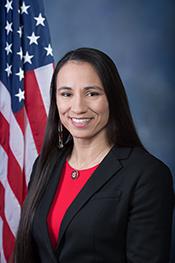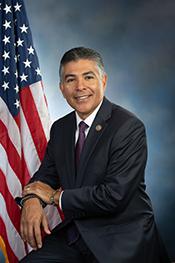0
0
0
Tribal Family Fairness Act
12/31/2022, 5:07 AM
Summary of Bill HR 4348
Bill 117 hr 4348, also known as the Tribal Family Fairness Act, is a piece of legislation currently being considered by the US Congress. The purpose of this bill is to address issues related to the placement of Native American children in foster care and adoption proceedings.
One of the key provisions of the Tribal Family Fairness Act is to ensure that Native American tribes have a greater role in determining the placement of Native American children who are in the foster care system. This includes giving tribes more authority to intervene in cases involving Native American children and to have a say in where these children are placed.
Additionally, the bill aims to strengthen the Indian Child Welfare Act (ICWA), which was originally passed in 1978 to protect the rights of Native American children in foster care and adoption cases. The Tribal Family Fairness Act seeks to clarify and strengthen the provisions of the ICWA to ensure that Native American children are not unfairly removed from their families and communities. Overall, the Tribal Family Fairness Act is designed to promote the well-being and cultural identity of Native American children by giving tribes a greater role in decisions regarding their placement in foster care and adoption proceedings. This bill is currently being debated in Congress and has the potential to have a significant impact on the lives of Native American children and families.
One of the key provisions of the Tribal Family Fairness Act is to ensure that Native American tribes have a greater role in determining the placement of Native American children who are in the foster care system. This includes giving tribes more authority to intervene in cases involving Native American children and to have a say in where these children are placed.
Additionally, the bill aims to strengthen the Indian Child Welfare Act (ICWA), which was originally passed in 1978 to protect the rights of Native American children in foster care and adoption cases. The Tribal Family Fairness Act seeks to clarify and strengthen the provisions of the ICWA to ensure that Native American children are not unfairly removed from their families and communities. Overall, the Tribal Family Fairness Act is designed to promote the well-being and cultural identity of Native American children by giving tribes a greater role in decisions regarding their placement in foster care and adoption proceedings. This bill is currently being debated in Congress and has the potential to have a significant impact on the lives of Native American children and families.
Congressional Summary of HR 4348
Tribal Family Fairness Act
This bill revises two programs to provide tribes with additional resources for child and family services.
First, the bill revises the MaryLee Allen Promoting Safe and Stable Families program by
- establishing a minimum grant award for tribes,
- increasing funds reserved for state court improvement grants,
- increasing the set-aside for tribes or tribal consortia,
- exempting certain plans from reporting requirements,
- allowing funds to be used for tribal customary adoptions,
- authorizing in-kind contributions to meet tribal matching requirements, and
- allowing tribal organizations to use the federal negotiated indirect cost rate in lieu of the administrative costs cap.
In addition, the bill revises the Stephanie Tubbs Jones Child Welfare Services program by
- modifying reporting requirements,
- authorizing in-kind contributions to meet tribal matching requirements, and
- allowing tribal organizations to use the federal negotiated indirect cost rate in lieu of the administrative costs cap.
Read the Full Bill
Current Status of Bill HR 4348
Bill HR 4348 is currently in the status of Bill Introduced since July 2, 2021. Bill HR 4348 was introduced during Congress 117 and was introduced to the House on July 2, 2021. Bill HR 4348's most recent activity was Referred to the Subcommittee on Worker and Family Support. as of July 2, 2021
Bipartisan Support of Bill HR 4348
Total Number of Sponsors
1Democrat Sponsors
1Republican Sponsors
0Unaffiliated Sponsors
0Total Number of Cosponsors
18Democrat Cosponsors
12Republican Cosponsors
6Unaffiliated Cosponsors
0Policy Area and Potential Impact of Bill HR 4348
Primary Policy Focus
Native AmericansAlternate Title(s) of Bill HR 4348
To remove administrative barriers to participation of Indian tribes in Federal child welfare programs, and increase Federal funding for tribal child welfare programs, and for other purposes.
Tribal Family Fairness Act
Tribal Family Fairness Act
Comments
Sponsors and Cosponsors of HR 4348
Latest Bills
National Defense Authorization Act for Fiscal Year 2026
Bill S 1071December 13, 2025
Enduring Justice for Victims of Trafficking Act
Bill S 2584December 13, 2025
Technical Corrections to the Northwestern New Mexico Rural Water Projects Act, Taos Pueblo Indian Water Rights Settlement Act, and Aamodt Litigation Settlement Act
Bill S 640December 13, 2025
Incentivizing New Ventures and Economic Strength Through Capital Formation Act of 2025
Bill HR 3383December 13, 2025
BOWOW Act of 2025
Bill HR 4638December 13, 2025
Northern Mariana Islands Small Business Access Act
Bill HR 3496December 13, 2025
Wildfire Risk Evaluation Act
Bill HR 3924December 13, 2025
Energy Choice Act
Bill HR 3699December 13, 2025
ESTUARIES Act
Bill HR 3962December 13, 2025
Improving Interagency Coordination for Pipeline Reviews Act
Bill HR 3668December 13, 2025



